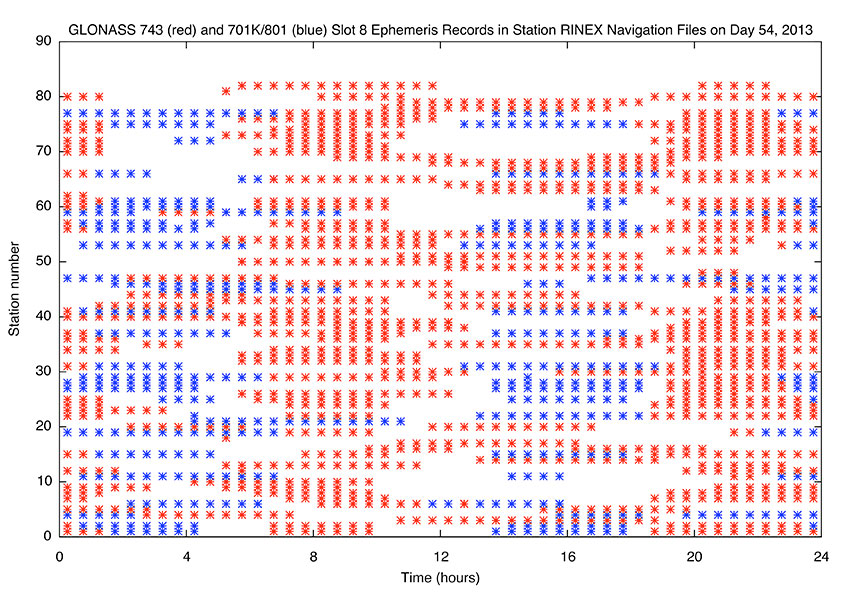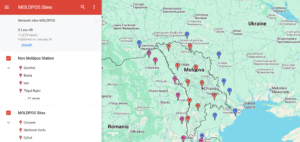No audio available for this content.
On day 53 (February 22) around 09:15 GPS Time, GLONASS 743 began transmitting on frequency channel 6 using almanac slot 8 (R08). It should replace GLONASS 701K (801) transmitting on frequency channel -5, previously using almanac slot 8. However, GLONASS 701K was not immediately switched off and/or did not switch slot numbers and continued to transmit on frequency channel -5 for several days, continuously identifying itself as a slot 8 satellite.
While most receivers were just tracking GLONASS 743, some tracked both GLONASS 743 and 701K. While 701K was not in the broadcast almanac, it was transmitting ephemeris records identifying itself as a satellite in slot 8. The net result was that RINEX observation files from certain stations had a mixture of GLONASS 743 and 701K data, with no indication of which satellite was which. Of course, one could use expected Doppler shift and/or code/carrier rate of change to figure out which data records correspond to which satellite.
Furthermore, the GLONASS navigation files from certain stations contained a mixture of ephemeris records from GLONASS 743 and 701K. For day 54, for example, GLONASS navigation files for 146 (non-MGEX) stations were available at CDDIS. A number of these did not contain any R08 entries, presumably because the corresponding receivers were set to not track unhealthy satellites. Some of the files contained R08 ephemeris records from earlier dates. These were ignored.
This left 82 files containing either GLONASS 701K and/or 743 ephemeris records for day 54. These files were parsed to determine, for each file, for which times ephemeris records were available for which satellites. The results are summarized in the following plot (PDF available):

The station numbers correspond to those in this table.
The navigation files from 29 stations contain both GLONASS 701K and 743 records. It seems that JAVAD GNSS and Topcon receivers were primarily affected.
Note that the CDDIS brdc***0.13g files on affected days have a mixture of GLONASS 743 and 701K ephemeris records, but at any one epoch, only one satellite is represented.
Files from days 53 through 56 are affected.
It appears that GLONASS 701K stopped identifying itself as a slot 8 satellite after about 15:15 GPS Time on day 56 and was not subsequently tracked by any station supplying data files to CDDIS.
See also IGSMail-6734, “Irregular GLONASS constellation change (for R08).
















